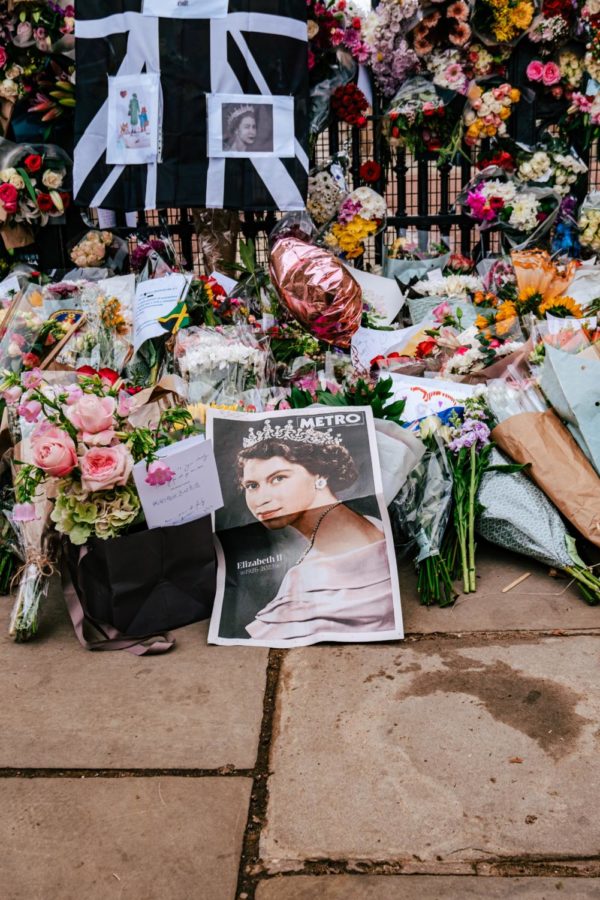Should a Royal Transition Initiate a National Transformation?

Photo by Samuel Regan-Asante, tributes outside of Buckingham Palace
The death of Queen Elizabeth II sparked widely different reactions throughout the world. Some view her death as a prompt to question the necessity of the monarchy. It is 2023. Should the British monarchy be abolished?
Britain freed its last colony in 1997, years into the Queen’s reign, yet the government never properly addressed what Britain has done to other nations or how its imperialism has harmed people. There has been much criticism of the British Empire’s past deeds. Many people feel bitterly about the idolization of the crown and how people completely dismiss its past crimes, and recently some have taken to social media to express their viewpoints. In “Black Americans see complications in adulation of Queen Elizabeth II,” a Washington Post article by Emmanuel Felton and Meena Venkataramanan, Breanna Vivid states, “At first, I admired the queen and the royal family, and it was more because of the glitz and glamour and the importance that they had,’(…) ‘But when I got older and I started learning more about the atrocities, especially in the countries that my parents come from, that whole entire thing is a mess by itself.’” This quotation comes from Ms. Vivid, an African American woman of Jamaican background, and sums up the viewpoint expressed by those wishing to eradicate the monarchy. Those “atrocities” she refers to were the effects of British colonization. For many the colonial past cannot be forgotten.
To the contrary, there are still a great deal of people who support the monarchy. Polls included in “The Pros and Cons of the Monarchy,” an article by The Week, verifies that as of late 2022, 75-80% of people polled wish to uphold the monarchy. Even though that number has decreased since 2012, this does not necessarily prove anything because the numbers are not drastic enough for consideration. In “Here’s What Would Happen to the Royal Family if Britain Abolished the Monarchy,” an Insider article by Mikhaila Friel and Lloyd Lee, Marlene Koening states, “There are no protests. The republican movement is small… The political system is stable.” Koening’s argument is sound. The monarchy is stable, and the dissent is not (at least presently) significant enough to cause trouble.
The monarchy is stable and a symbol for the people, but is this enough to dispel negative sentiment? Aside from its troubling past, there are many additional drawbacks associated with the British monarchy and monarchies in general. The monarchy is funded largely by UK tax money, and there is no real practical need for the monarchy. It is also a classist system, since it creates a division based purely upon ancestry. With this in mind, along with the fact that support for the monarchy has recently been dwindling, is there a possibility the monarchy will be abolished? And do the benefits outweigh the cost?
Grace is a junior returning for her 3rd year on The BIM Bulletin staff and 9th year at BASIS Independent McLean. Some of her passions include theater,...








